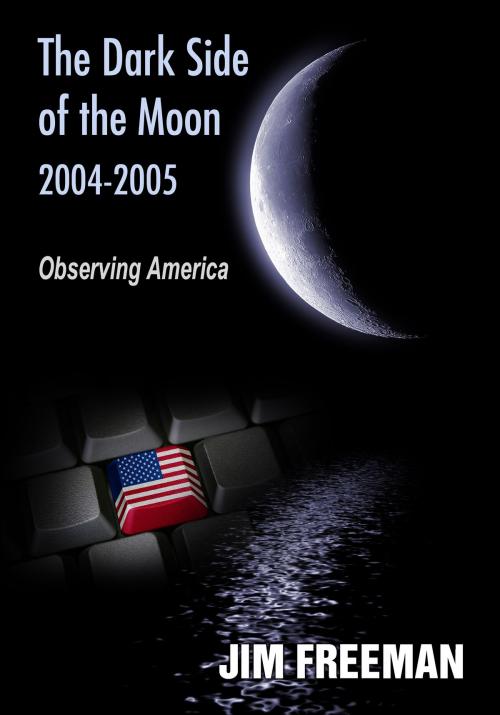The Dark Side of the Moon 2004-2005
Observing America
Nonfiction, Social & Cultural Studies, Political Science| Author: | Jim Freeman | ISBN: | 9781937674038 |
| Publisher: | Barkley Press | Publication: | June 29, 2012 |
| Imprint: | Language: | English |
| Author: | Jim Freeman |
| ISBN: | 9781937674038 |
| Publisher: | Barkley Press |
| Publication: | June 29, 2012 |
| Imprint: | |
| Language: | English |
About the Series The Dark Side of the Moon series is a chronological collection of observations on social, political and occasionally even personal subjects. Jim Freeman’s views of the American scene are salted with irony and lightly peppered by humor, a relief from the unending rants of the far left or right and reasonably balanced by common sense. They’re here as Freeman wrote and published them at the time, unedited and without the benefit of hindsight. These books are food for thought and Freeman encourages readers to cut into them - use and abuse these books, dog-ear the pages, mark-up with highlighter and write in the margins. Make them relevant, make them yours to refer to content that particularly pleased or infuriated you. Each book in the series is in some ways a time-machine that focuses the blur of events and gives them context. Mark Twain said “Everyone is a moon, and has a dark side which he never shows to anybody.” Jim Freeman looks at that dark side and strives to shine light on it. About the 2004-2005 Book (Volume 2 of the 5 Volume Series) Volume 2 of The Dark Side of the Moon moves from Howard Dean’s ‘excellent chance of becoming the next president of the United States’ to the aftermath of Hurricane Katrina, the evisceration of Medicaid and the exposure of the Jack Abramoff scandal. But what else was going on while Howard Dean opened the door and stood aside for John Kerry? All the frantic rhetoric of a presidential election year played out against two wars not going all that well, super-charged profits driven by rocket-fueled debt and the beginnings, the first itchiness around the American collar that all was not well deep down in the state of the union. What was on the national mind as Hurricane Katrina formed in the Gulf? Volume 2 of The Dark Side of the Moon frames the state of national disconnection, observing America within the context of those events.
About the Series The Dark Side of the Moon series is a chronological collection of observations on social, political and occasionally even personal subjects. Jim Freeman’s views of the American scene are salted with irony and lightly peppered by humor, a relief from the unending rants of the far left or right and reasonably balanced by common sense. They’re here as Freeman wrote and published them at the time, unedited and without the benefit of hindsight. These books are food for thought and Freeman encourages readers to cut into them - use and abuse these books, dog-ear the pages, mark-up with highlighter and write in the margins. Make them relevant, make them yours to refer to content that particularly pleased or infuriated you. Each book in the series is in some ways a time-machine that focuses the blur of events and gives them context. Mark Twain said “Everyone is a moon, and has a dark side which he never shows to anybody.” Jim Freeman looks at that dark side and strives to shine light on it. About the 2004-2005 Book (Volume 2 of the 5 Volume Series) Volume 2 of The Dark Side of the Moon moves from Howard Dean’s ‘excellent chance of becoming the next president of the United States’ to the aftermath of Hurricane Katrina, the evisceration of Medicaid and the exposure of the Jack Abramoff scandal. But what else was going on while Howard Dean opened the door and stood aside for John Kerry? All the frantic rhetoric of a presidential election year played out against two wars not going all that well, super-charged profits driven by rocket-fueled debt and the beginnings, the first itchiness around the American collar that all was not well deep down in the state of the union. What was on the national mind as Hurricane Katrina formed in the Gulf? Volume 2 of The Dark Side of the Moon frames the state of national disconnection, observing America within the context of those events.















